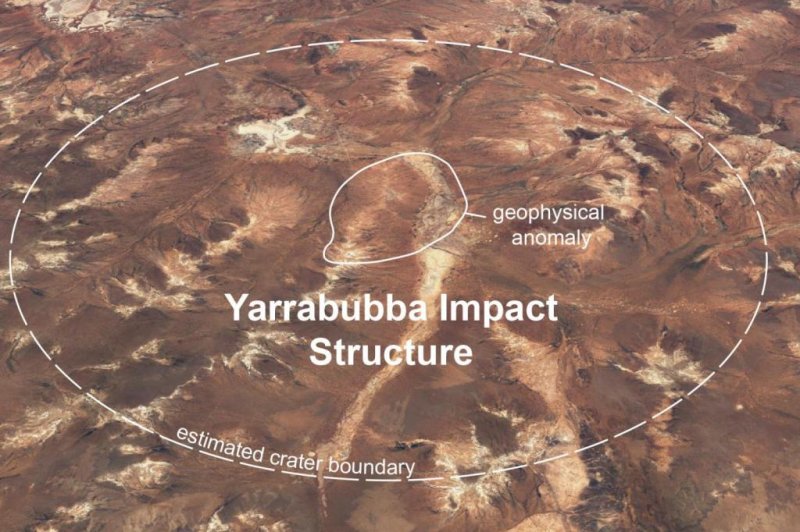The Yarrabubba crater in Western Australia is the oldest dated crater on Earth. Photo by
Google Earth/Curtin University
Jan. 22 (UPI) -- New dates for the Yarrabubba crater, located in outback Western Australia, suggest the asteroid impact triggered the end of a global deep freeze called Snowball Earth.
According to isotopic analysis conducted by scientists at Curtin University, the Yarrabubba crater was created by an asteroid impact 2.229 billion years ago, making it 200 million years older than the next oldest collision.
Researchers were able to figure out the crater's age by analyzing zircon and monazite minerals that were recrystallized by the shock of the powerful impact.
"Yarrabubba, which sits between Sandstone and Meekatharra in central WA, had been recognized as an impact structure for many years, but its age wasn't well determined," Curtin professor Chris Kirkland said in a news release.
According to the study, published this week in the journal Nature Communications, impact's timing coincides with the thawing of a period of extreme glaciation, the so-called Huronian glaciation, that began some 2.4 billion years ago.
"The age of the Yarrabubba impact matches the demise of a series of ancient glaciations. After the impact, glacial deposits are absent in the rock record for 400 million years," said Nicholas Timms, an associate professor at Curtin. "This twist of fate suggests that the large meteorite impact may have influenced global climate."
As part of their research, scientists ran models showing an asteroid striking an ice-covered planet could have sent half a trillion tons of water vapor into the atmosphere. Because water vapor is a greenhouse gas, the event could of triggered a period of warming.
"This finding raises the question whether this impact may have tipped the scales enough to end glacial conditions," Timms said.















